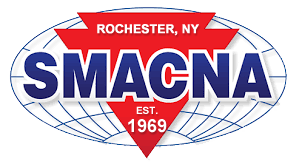COVID-19 Resources
Below you will find information that businesses can use to educate themselves and their employees to make informed decisions on continuity during this uncertain time. This page will continue to be updated as more information is released.
Executive Order from Governor Cuomo
Update 4/9/20
Text of Executive Order Relating to Construction
Construction
All non-essential construction must safely shut down, except emergency construction, (e.g. a project necessary to protect health and safety of the occupants, or to continue a project if it would be unsafe to allow to remain undone, but only to the point that it is safe to suspend work).
Essential construction may proceed, to the extent that:
the construction is for, or your business supports, roads, bridges, transit facilities, utilities, hospitals or healthcare facilities, homeless shelters, or public or private schools;
the construction is for affordable housing, as defined as construction work where either (i) a minimum of 20% of the residential units are or will be deemed affordable and are or will be subject to a regulatory agreement and/or a declaration from a local, state, or federal government agency or (ii) where the project is being undertaken by, or on behalf of, a public housing authority;
the construction is necessary to protect the health and safety of occupants of a structure;
the construction is necessary to continue a project if allowing the project to remain undone would be unsafe, provided that the construction must be shut down when it is safe to do so;
the construction is for projects in the energy industry in accordance with Question No. 14 in the FAQ at: https://esd.ny.gov/sites/default/files/ESD_EssentialEmployerFAQ_033120.pdf;
the construction is for existing (i.e. currently underway) projects of an essential business; or
the construction work is being completed by a single worker who is the sole employee/worker on the job site.
At every site, it is required that the personnel working on the site maintain an appropriate social distance, including for purposes of elevators/meals/entry and exits. Sites that cannot maintain appropriate social distancing, as well as cleaning/disinfecting protocols must close. Enforcement will be conducted by state and local governments, including fines up to $10,000 per violation.
Construction may continue solely with respect to those employees that must be present at the business location/construction site in support of essential business activities. No other employees/personnel shall be permitted to work in-person at the business location/construction site. Any other business activities being completed that are not essential are still subject to the restrictions provided by Executive Order 202.
As noted above, local governments, including municipalities and school districts, are allowed to continue construction projects at this time as government entities are exempt from these essential business restrictions. However, to the greatest extent possible, local governments should postpone any non-essential projects and only proceed with essential projects when they can implement appropriate social distancing and cleaning/disinfecting protocols. Essential projects should be considered those that have a nexus to health and safety of the building occupants or to support the broader essential services that are required to fulfill the critical operations of government or the emergency response to the COVID-19 public health crisis.
OSHA Interim Enforcement Response Plan for Coronavirus Disease 2019 (COVID-19)
Updated 4/13/20
This Interim Enforcement Response Plan for Coronavirus Disease 2019 (COVID-19) provides instructions and guidance to Area Offices and compliance safety and health officers (CSHOs) for handling COVID-19-related complaints, referrals, and severe illness reports. The scope of this guidance covers all investigations and inspections specifically related to the workplace hazard of SARS-CoV-2 (severe acute respiratory syndrome coronavirus 2), which is the virus causing the current COVID-19 pandemic.
COVID-19 SBA Disaster Loans
Here is a link to a resource from the NYS Division of Small Business & Technology Development:
Practices for Construction Jobsites
Click Here for Recommended Practices for Construction Jobsites
New York State COVID-19 Legislation including Paid Sick Leave Bill
Guidance on NYS COVID-19 Legislation and Governor Executive Orders
Federal COVID-19 Legislation: Families First Coronavirus Response Act
Guidance on how to navigate the Federal COVID-19 Legislation
Coronavirus Tool Box Talk
Download Tool Box Talk: CORONAVIRUS – (COVID-19): Protect Yourself
Misc Items:
Insurers decline Congress’ request to pay all COVID-19 business interruption losses
COVID-19 Emergency Paid Sick Leave Form from Bolanos Lowe Law Firm
COVID-19 Emergency Family and Medical Leave Form From Bolanos Lowe Law Firm
Protocols for Essential Personnel to Return to Work Following COVID-19 Exposure or Infection
U.S. Department of Labor Issues Enforcement Guidance For Recording Cases of COVID-19
Monroe County Loan Programs
City of Rochester Kiva Loan Program
The City of Rochester has announced changes to the Kiva loan program available to businesses located in the City of Rochester. The changes are as follows:
Zero-interest loan maximum increased to $15,000
Elimination of some eligibility issues. Follow link above for additional details
Implementation of a 6-month grace period repayment schedule
Monroe County Zero-Interest Small Business Assistance Loan Program
In response to the current COVID-19 crisis Monroe County has established a loan program for small businesses. Highlights include:
Zero-interest loans up to $10,000, which may be used to support operations and employment
Businesses with 50 or fewer full-time or full-time equivalent employees are eligible
No application cost
